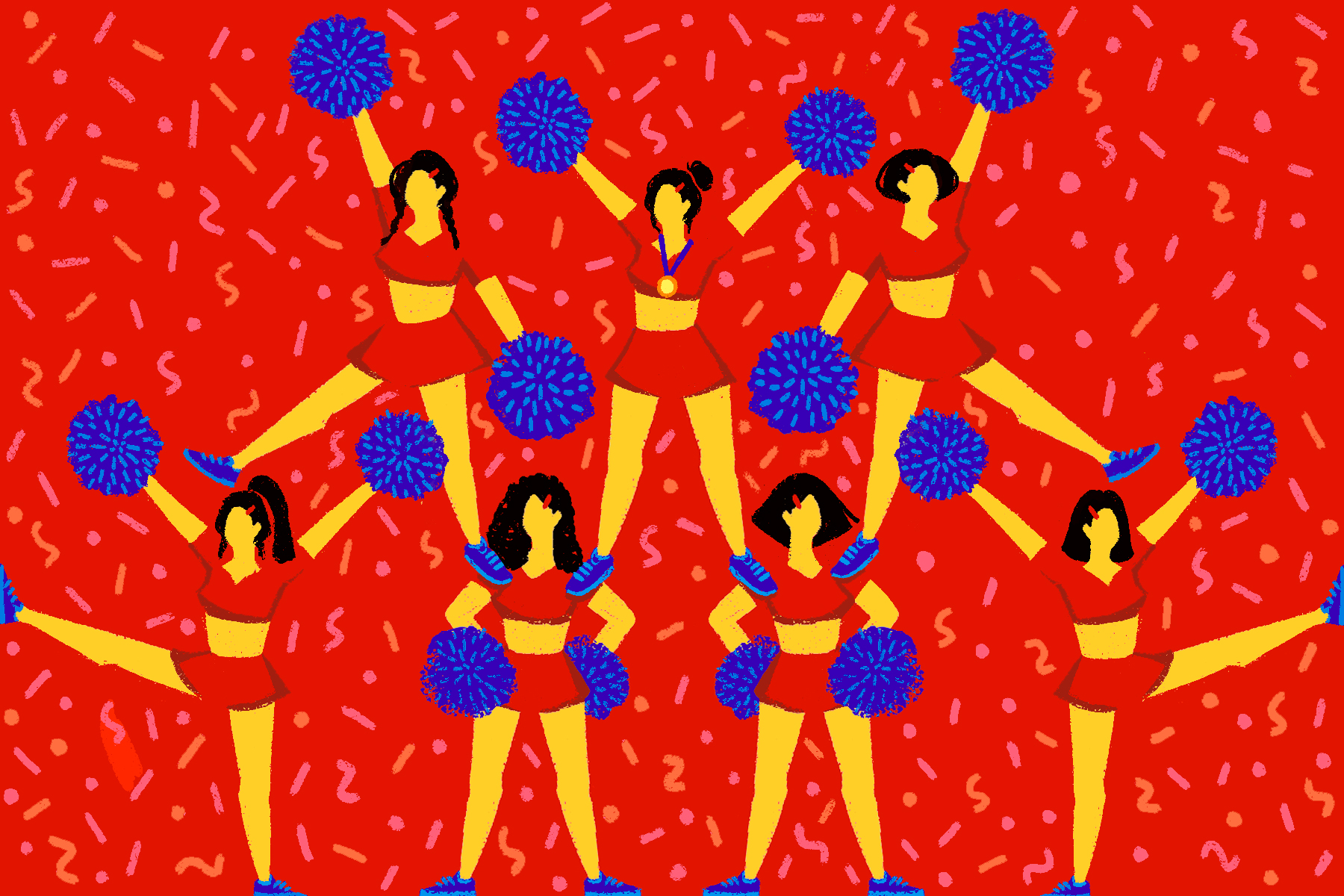With their sequined costumes and glittery pompoms, NFL cheerleaders are a hard sight to miss. Maybe the cheer squad isn’t the main reason fans come to games, but these women are undoubtedly an integral part of NFL culture.
Not only are they a force of enthusiasm, they also serve a vital arm of public relations for the teams, giving them more exposure and airtime.
In perfect formation, with flawless makeup and more bare skin than clothing, groups of girls hype up the crowd and provide a true visual spectacle at halftime. But beneath the smiles and vigorous cheering, life for NFL cheerleaders is not as perfect as it may seem.
Lately, the news has been abuzz with talk of cheerleaders pushing back against their NFL employers in an effort to fight for gender equality. Like many other women at this time, they’re sick of getting harrassed, being underpaid and held to unequal standards.
And why should they stand for this treatment? Their jobs require demanding hours, rigorous physical training and unduly severe guidelines that shape their lives. At the very least, it seems that this merits fair treatment and recognition.
Recently, the New York Times got a hold of the handbook for NFL cheerleaders. The handbook outlines general standards and practices the women must abide by; it offers instruction on everything from shaving techniques and dress codes outside of game time to social media behavior.
For example, it says cheerleaders for the Carolina Panthers can only take water breaks when the team plays on offense. Cheerleaders for the Baltimore Ravens have to undergo regular weigh-ins.
The NFL cheerleaders have no say in any of this. The teams have all the power; if one woman complains, they can easily find a replacement cheerleader among the thousands of women eager to join their squads.
“The club’s intention is to completely control the behavior of the women, even when they are not actually at their workplace,” said Leslie Levy, who represented the cheerleaders who sued the Jets and the Oakland Raiders.
As of this month, a former cheerleader for the New Orleans Saints has sued the team for its restrictions on her personal life. In January, Bailey Davis posted a photo of herself on Instagram wearing a one-piece lace bodysuit.
The 22-year-old soon lost her job for violating a code of conduct that prohibits cheerleaders from appearing nude, seminude or in lingerie. Davis has filed a complaint with the Equal Employment Opportunity Commission, which upholds civil rights relating to workplace discrimination.
As she pointed out in an interview with NPR, there are glaring discrepancies between the standards for social media conduct for cheerleaders and for the men they cheer for.
“If I post something, and I’m in a swimsuit or in a body suit, it’s seen as something sexual,” she says, “but the players can post shirtless in their underwear and it’s just seen as athletic.”
The unequal standards don’t stop at social media. Rather, they intrude on the private lives of cheerleaders as well. According to the team’s rules, if a cheerleader out in public encounters a player, she must leave the venue or risk getting fired.
“If I’m [at a place before a player] first, I would still have to leave,” says Davis. “And that’s not just Saints players, it’s any NFL team or NBA. So anybody from the Pelicans could walk in, and I would have to leave, or I’d be fired.”
This isn’t the first time cheerleaders have demanded change. Back in 2014, NFL cheerleaders made the news for demanding fair and equal pay. The women work 42 weeks per year. They attend corporate and fan events and serve as the face of promotional gear; nevertheless, they were, and, still are woefully underpaid.
Prior to a lawsuit in September of 2015, the Oakland Raiders were paying their cheerleaders only $5 per hour. After the lawsuit, however, the cheerleaders can now look forward to earning the same pay as any other minimum wage employee.
Teams defended the low wages by claiming that cheerleaders are technically not their employees since they are hired through third parties. Thus, the teams don’t have to pay what state labor laws require.
As lawsuit after lawsuit proved, this is quite false. Multiple judges ruled that teams must pay back their cheerleaders the millions of dollars that have been withheld from them.
As the focus of the women’s social movements has shifted, so too have the priorities of the cheerleaders. In particular, they are mirroring the outcries of women in other industries who are calling out coworkers and employers for sexual harassment in the workplace.
Sadly, pro-cheerleaders describe groping and routine sexual harassment as fixtures in their jobs. Forced to attend promotional events and mingle with fans, they are often surrounded by drunk men who offer lewd comments and unwelcome touches.
One cheerleader from the Dallas Cowboys remembers a fan telling her “I hope you get raped!” “It’s part of the job,” she says, “you’re supposed to take it.”
The Cowboys had instructions in the rulebooks on how to deal with harassment. Of course, the primary goal is always to keep the fans happy.
The Dallas cheerleader, speaking in anonymity, recalls how “We were told what to say, like, ‘That’s not very nice,’ To be sweet, not rude. Say, ‘Can I ask you to step over here?’ Use body language to help deter the situation. Never be mean. Never. Always courteous.”
It is baffling to hear of any industry telling women to cater to men despite feeling uncomfortable and unsafe; at the same time, however, it’s utterly predictable.
One could only hope that as the standards for equal treatment continue to rise throughout society, so too will the standards for America’s most popular sports league. However, in a culture known for sexual abuse and harassment scandals, who knows how soon that will happen.
One thing is for sure: It’s about time America takes up its pom-poms and cheers on these women as they fight for what they deserve.

















